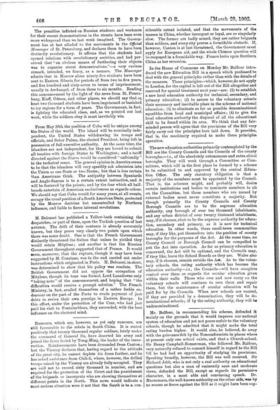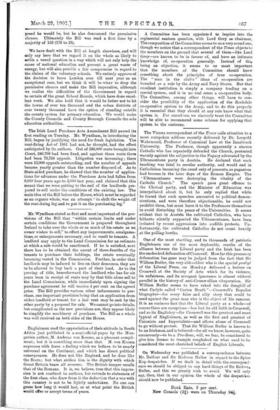Mr. Balfour, in recommending his scheme, defended it mainly on
the grounds that it would improve our national system of education and yet not prove unfair to the voluntary schools, though he admitted that it might make the total rating burden higher. It would also, be believed, do away with the grievance felt by the Nonconformists in places where at present only one school exists, and that a Church-school. Sir Henry Campbell-Bannerman, who followed Mr. Balfour, very naturally refused to commit himself in regard to the Bill till he had had an opportunity of studying its provisions. Speaking broadly, however, the Bill was well received. Sir Richard Jebb, who is not only a real authority on educational questions but also a man of eminently sane and moderate views, defended the Bill, except as regards its permissive character, in a most able and convincing speech. Dr. Macnamara, the well-known authority on the other side, was by no means as fierce against the Bill as it might have been sup-
posed he would be, but he also denounced the permissive clauses. Ultimately the Bill was read a first time by a majority of 153 (176 to 23).







































 Previous page
Previous page